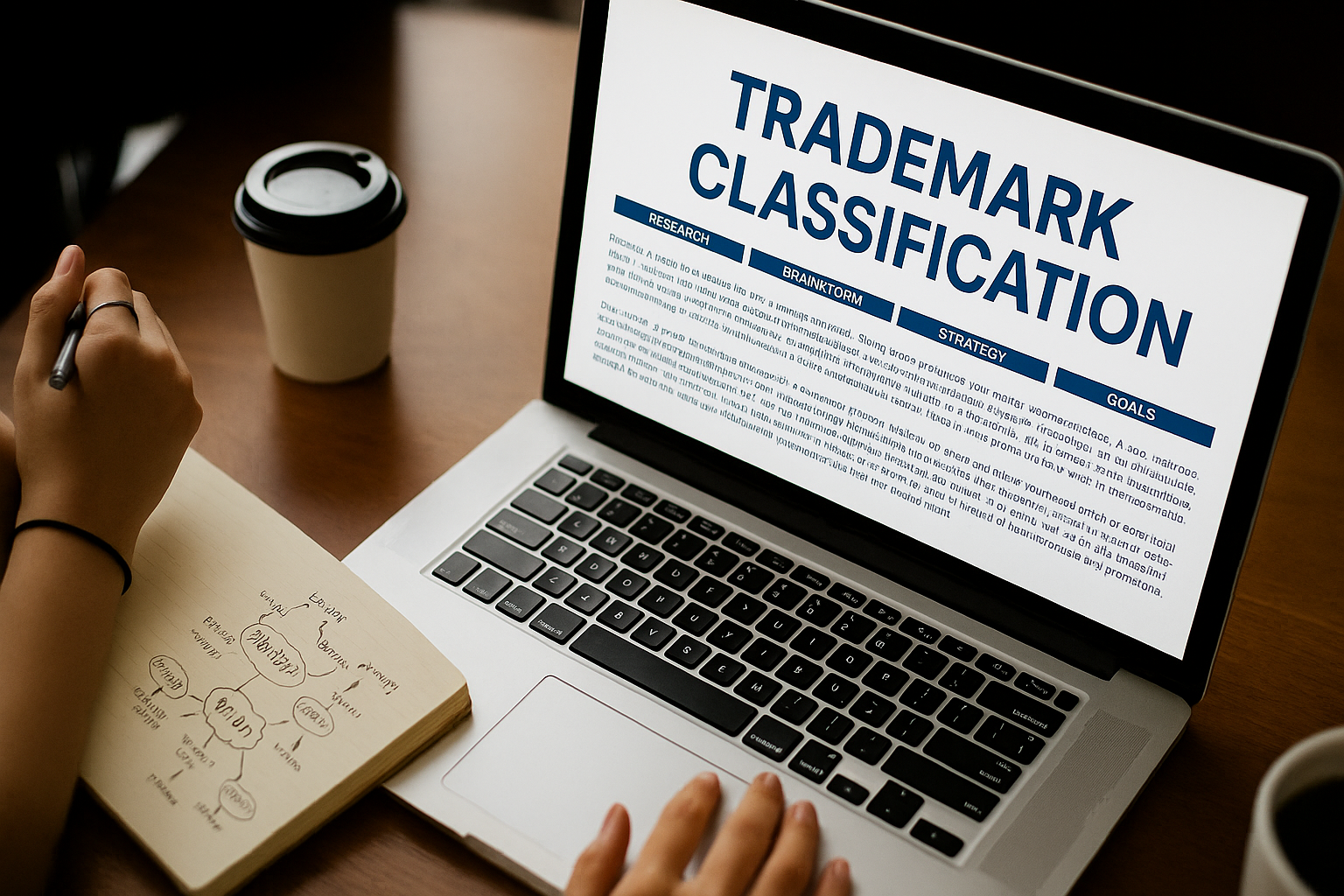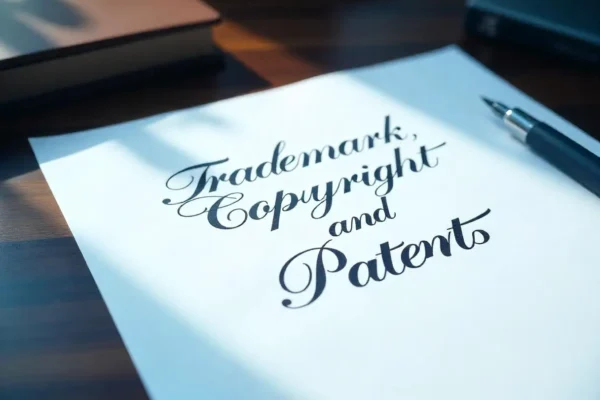Top 10 Most Relevant Trademark Classes Every Entrepreneur Should Know
Why Trademark Classes Matter
Trademark registration in India is more than just filing a name or logo. Choosing the right trademark class is critical. If you’re launching a startup, building a D2C brand, or growing a service-based business, your brand must be registered under the correct trademark classification to enjoy full legal protection.
India follows the Nice Classification system, which categorizes trademarks into 45 classes:
- Classes 1–34: Goods or products
- Classes 35–45: Services
Selecting the wrong trademark category can lead to:
- Trademark rejection or objections
- Infringement risks
- Weak or unenforceable rights
This guide simplifies the trademark class list and highlights the top 10 most relevant trademark registration classes for modern Indian entrepreneurs in 2025. Whether you’re in SaaS, fashion, food, education, or e-commerce, this trademark classification list helps you file with confidence.
Top 10 Most Relevant Trademark Classes
With so many classes of trademark in India, it can be overwhelming to know which one fits your business. That’s why we’ve simplified it. Below are the 10 most relevant trademark classes for today’s entrepreneurs — arranged in ascending order for clarity and ease of understanding.
Class 3 – Cosmetics, Skincare & Personal Care
Class 3 applies to businesses involved in beauty, hygiene, and personal care products. It is the appropriate trademark class for companies selling items used in daily grooming or wellness routines.
What it covers:
· Soaps, shampoos, creams
· Makeup, perfumes, body lotions
· Essential oils and grooming kits
This class is ideal for skincare brands, cosmetic manufacturers, and wellness product lines. It ensures your brand identity is protected in the competitive beauty and wellness market.
Example: brand like Mamaearth offering face wash, shampoos, and body lotions.
Class 5 – Pharmaceuticals, Healthcare & Wellness
Class 5 is tailored for companies producing medicinal and wellness-based goods. Whether your brand is rooted in modern medicine or traditional healing, this is a key class for legal protection.
What it covers:
· Allopathic and Ayurvedic medicines
· Health supplements and immunity boosters
· Nutraceuticals and medical kits
Pharma companies, herbal medicine brands, and supplement businesses can use this class to secure the trust and recognition they’ve built in the health sector.
Example: Himalaya Wellness offering Ayurvedic tablets, baby care meds, and immunity boosters.
Class 9 – Digital Products, Gadgets & Downloadable Software
Class 9 protects tangible technology-related goods, especially downloadable digital products and electronic devices. If your customer downloads or purchases a product, this is the right class.
What it covers:
· Software applications and mobile apps
· Smart devices, wearables, gadgets
· E-books, downloadable PDFs, data storage equipment
This class is perfect for businesses that sell downloadable apps, digital goods, or physical tech devices.
Example: Byju’s app or Adobe Acrobat Reader — both are downloadable software.
Remember: Class 9 is for digital products the user downloads or owns. If you’re offering tech as a service, such as SaaS or web development, that’s Class 42.
Class 16– Stationery, Books & Printed Materials
Class 16 focuses on all kinds of printed and paper materials. It’s the right fit for businesses involved in stationery, education, or publishing.
What it covers:
· Books, notebooks, exam guides
· Office stationery and printed forms
· Educational publications and materials
A must for publishers, stationery brands, and academic product providers. It ensures your brand identity is protected in the educational and publishing industry
Example: Camlin Kokuyo and Classmate offer stationery and printed products protected under this class.
Class 25 – Clothing, Footwear & Fashion
Class 25 protects all fashion-related goods — from everyday wear to designer apparel. It secures your identity across retail, wholesale, and private label markets.
What it covers:
· Clothing, uniforms, casual wear
· Footwear and headgear
· Fashion accessories
This class is ideal for garment brands, fashion designers, and apparel startups looking to build a strong, recognizable presence.
Example: Zudio or H&M for clothes, shoes, and accessories.
Class 30 – Packaged Food, Beverages & Spices
Class 30 is the go-to trademark class for businesses involved in processed or packaged food items. It covers everyday consumer products found on grocery shelves and in home pantries.
What it covers:
· Tea, coffee, spices
· Biscuits, noodles, and bakery items
· Ice creams and chocolates
Whether you run a specialor a growing FMCG product line, this class gives you legal control over your product identity and labeling across retail and online markets.
Example: Nescafé for instant coffee, or Maggi for noodles.
Class 35 – Business Services, Marketing & E-commerce
Class 35 covers a wide range of commercial operations and business support services. It’s one of the most used classes in today’s digital and retail economy.
What it covers:
· Advertising and business consultancy
· Retail, wholesale, and online selling
· HR services and market analysis
From e-commerce to agencies, this class protects your service-based business identity and presence across multiple customer-facing platforms It’s one of the most frequently filed trademark services classes in India.
Example: Flipkart or BigBasket — e-commerce platforms.
Class 41 – Education, Training & Online Learning
Class 41 covers educational services and content delivery in both traditional and digital formats. If your business teaches, trains, or empowers learners, this is your class.
What it covers:
· Online courses, workshops, coaching
· Educational publishing
· Learning management and training services
Perfect for edtech companies, tutors, and skill-based trainers, this class protects the integrity and originality of your educational offerings across formats and platforms.
Class 42 – IT, Software Services & Scientific R&D
Class 42 is for businesses offering technology services — especially cloud-based or custom-developed digital solutions. This class protects the intangible service of building, maintaining, or hosting software.
What it covers:
· Software as a Service (SaaS)
· Cloud Platforms, AI/ML Tools
· Web/App Development, R&D, Tech Consulting
It is essential for IT Companies, SaaS startups and businesses offering tech-based services rather than products.
Example: TCS and Zoho offer software development and cloud-based IT services covered under this class.
Note : Use Class 42 if your product is used, hosted, accessed online as a service – not downloaded. Many Modern tech companies registered in both classess ( Class 9 and Class 42 ) to cover all use cases
Class 43 – Food, Restaurants & Hospitality Services
Class 43 applies to businesses offering food preparation, accommodation, and hospitality services—both dine-in and delivery.
What it covers:
· Restaurants, cafés, food trucks
· Cloud kitchens and delivery brands
· Hotels, resorts, and guest houses
A must-have for restaurant chains, food delivery brands, and hospitality businesses looking to secure their service name, presentation, and customer experience under trademark law. It’s a crucial part of all classes of trademarks relevant to the hospitality and food service industry.
Example: Domino’s or Barbeque Nation for dine-in and food delivery.
Can You File Under Multiple Trademark Classes?
Yes! Many businesses need to file in more than one class to fully protect their brand.
Example: A company offering herbal skincare products (Class 3), printed guides (Class 16), and online courses (Class 41) should register under all three.
Each class is treated as a separate application and fee, but it ensures complete legal protection for your business activities.
Final Thoughts
When it comes to trademark registration in India, your success depends on more than just having a unique name. Your brand identity deserves legal protection—and that starts by choosing the correct trademark registration classes based on the products or services you offer.
Use this guide as a foundation for your trademark class search. The right classification can:
· Avoid unnecessary objections
· Maximize legal protection
· Strengthen your brand value
Whether you’re exploring the 45 classes of trademark, narrowing your scope through a trademark categories list, preparing a trademark application, or considering international trademark registration to protect your brand globally—take this decision seriously.
Choosing the wrong class can delay registration, limit protection, and open you up to risk. Choose wisely — or better yet, choose with expert help.
Class 3 – Cosmetics, Skincare & Personal Care











